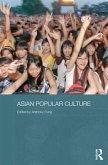Ten films released between 9/11 and Gulf War II reflect raging debates about US foreign policy and what it means to be an American.
Tracing the portrayal of America in the films Pearl Harbor (World War II); We Were Soldiers and The Quiet American (the Vietnam War); Behind Enemy Lines, Black Hawk Down and Kandahar (episodes of humanitarian intervention); Collateral Damage and In the Bedroom (vengeance in response to loss); Minority Report (futurist pre-emptive justice); and Fahrenheit 9/11 (an explicit critique of Bush's entire war on terror), Cynthia Weber presents a stimulating new study of how Americans construct their identity and the moral values that inform their foreign policy.
This is not just another book about post-9/11 America. It introduces the concept of 'moral grammars of war', and explains how they are articulated: Many Americans asked in the wake of 9/11 - not only 'why do they hate us?' but 'what does it mean to be a moral America(n) and how might such an America(n) act morally in contemporary international politics? This text explores how these questions were answered at the intersections of official US foreign policy and post-9/11 popular films.
It also details US foreign policy formation in relation to traditional US narratives about US identity 'who we think we were/are', 'who we wish we'd never been', 'who we really are', and 'who we might become' as well as in relation to their foundations in nationalist discourses of gender and sexuality.
This book will be of great interest to students of American Studies, US Foreign Policy, Contemporary US History, Cultural Studies, Gender and Sexuality Studies and Film Studies.
Hinweis: Dieser Artikel kann nur an eine deutsche Lieferadresse ausgeliefert werden.
Tracing the portrayal of America in the films Pearl Harbor (World War II); We Were Soldiers and The Quiet American (the Vietnam War); Behind Enemy Lines, Black Hawk Down and Kandahar (episodes of humanitarian intervention); Collateral Damage and In the Bedroom (vengeance in response to loss); Minority Report (futurist pre-emptive justice); and Fahrenheit 9/11 (an explicit critique of Bush's entire war on terror), Cynthia Weber presents a stimulating new study of how Americans construct their identity and the moral values that inform their foreign policy.
This is not just another book about post-9/11 America. It introduces the concept of 'moral grammars of war', and explains how they are articulated: Many Americans asked in the wake of 9/11 - not only 'why do they hate us?' but 'what does it mean to be a moral America(n) and how might such an America(n) act morally in contemporary international politics? This text explores how these questions were answered at the intersections of official US foreign policy and post-9/11 popular films.
It also details US foreign policy formation in relation to traditional US narratives about US identity 'who we think we were/are', 'who we wish we'd never been', 'who we really are', and 'who we might become' as well as in relation to their foundations in nationalist discourses of gender and sexuality.
This book will be of great interest to students of American Studies, US Foreign Policy, Contemporary US History, Cultural Studies, Gender and Sexuality Studies and Film Studies.
Hinweis: Dieser Artikel kann nur an eine deutsche Lieferadresse ausgeliefert werden.
'Extremely relevant for understanding current world politics and the role of the American state in it ... Hollywood films have such a profound impact on viewers all over the world, influencing and sometimes producing popular attitudes. Yet international relations scholars rarely examine the role of filmic images in the construction of our world today. This work fills the gap with nuanced, brilliant insights.' -L. H. M. Ling, New School University 'One of the most perceptive and important works on the immediate post-September 11 period - tracking broad, divergent American attitudes and values, particularly as regards U.S. relations with a wider world.' - John Howard, Kings College London 'Cynthia Weber offers a commanding and insightful analysis of how Hollywoodshapes America's consciousness, foreign policy and perception of itself. A brilliantbook, brilliantly put together.'- Ziauddin Sardar, co-author, Why Do People Hate America?








